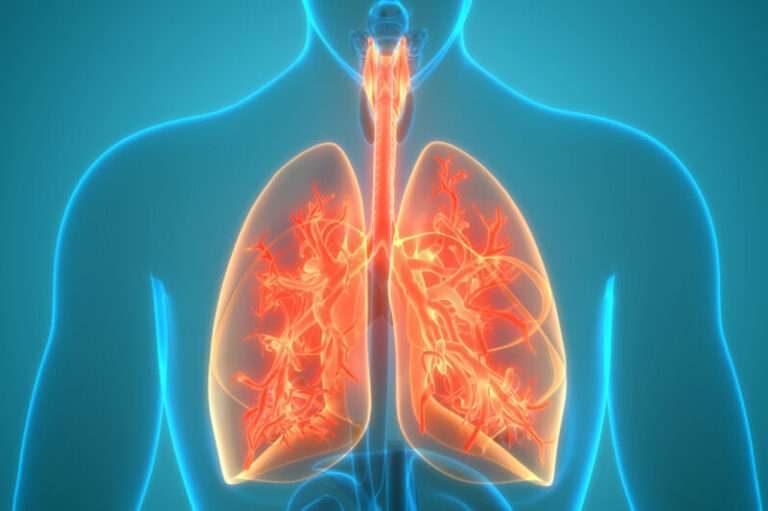The human microbiome is an incredibly complex and diverse ecosystem of bacteria, fungi, and viruses that live in and on our bodies.
The respiratory microbiome is a subset of this larger microbial community that lives in the airways of the lungs. It plays an important role in maintaining health by protecting us from pathogens, regulating inflammation, and helping to keep our immune system functioning properly.
In this article, we will explore what the respiratory microbiome is, how it affects our health, and what we can do to support its function.
What Is the Respiratory Microbiome?
The respiratory microbiome consists of microorganisms that live in the airways of the lungs. This includes bacteria such as Streptococcus pneumoniae, and Haemophilus influenzae; fungi such as Aspergillus fumigatus; viruses such as rhinovirus; protozoa such as Pneumocystis jirovecii; and other organisms including dust mites.
These microbes are essential for keeping us healthy by preventing pathogenic bacteria from colonizing our airways, regulating inflammation responses to allergens or irritants like smoke or dust particles, producing antimicrobial compounds to fight off infection-causing organisms, breaking down toxins produced by certain types of fungi or bacteria into harmless substances that can be expelled from the body through coughing or sneezing.
How Does It Affect Our Health?
The respiratory microbiome plays a critical role in keeping us healthy by:
Regulating Inflammation Responses:
Inflammation responses are a natural defense mechanism in the body. When foreign substances, such as smoke or dust particles, enter the body, it triggers an immune response to protect itself from potential harm. The presence of certain microbes helps regulate this response and prevent excessive inflammation that can lead to asthma attacks with symptoms like wheezing and shortness of breath.
Preventing Colonization by Pathogenic Bacteria:
Preventing colonization by pathogenic bacteria involves limiting the growth of harmful microorganisms in order to protect against illness. This can be achieved through the production of antimicrobial compounds, such as those produced by beneficial bacteria like Streptococcus pneumoniae. These compounds help to inhibit the growth and spread of potentially dangerous pathogens, thus reducing the risk of infection.
Breaking Down Toxins:
The breakdown of toxins is an important process in maintaining a healthy respiratory system. Certain fungi produce toxins that can be hazardous if inhaled, but these toxins are broken down into harmless substances when exposed to beneficial microbes present in the respiratory microbiome. This allows them to be expelled from the body through coughing or sneezing without causing any harm to your health.
Producing Vitamins & Minerals:
Producing vitamins and minerals is an important role of the respiratory microbiome. Research has demonstrated that certain species within this microbiome are capable of producing essential vitamins and minerals, such as vitamin B12 and folate, which are necessary for proper cell function and development. These vitamins and minerals play a vital role in maintaining overall health and wellbeing.
What Can We Do To Support Respiratory Microbiome’s Function?
There are several things you can do to support your respiratory microbiome’s function including:
Eating a Balanced Diet:
Eating a balanced diet rich in fruits and vegetables is an important part of maintaining good health. Fruits and vegetables provide essential vitamins, minerals, antioxidants, and fiber that are necessary for proper immune system functioning and overall well-being. Eating a variety of these foods helps to keep the respiratory microbiome healthy and balanced.
Avoiding Smoking:
Smoking has been scientifically demonstrated to negatively impact the balance of beneficial bacteria in the respiratory microbiome, which can lead to an increased risk for infection and other health complications. To protect your respiratory microbiome’s healthy functionality, it is important to avoid smoking.
Practicing Good Hygiene:
Practicing good hygiene is essential for reducing the risk of exposure to pathogens and preventing the spread of infections. This includes washing hands frequently with soap and water, avoiding touching one’s face or mouth with unwashed hands, and regularly cleaning and disinfecting surfaces in order to control the spread of germs within your surroundings.
In conclusion, it is essential to understand the role of our unique microbiomes in maintaining optimal health throughout life, particularly when it comes to supporting healthy lung function. The human respiratory microbiome consists primarily of bacteria but also includes viruses and other microorganisms that play a vital role in protecting us from pathogens while regulating inflammatory responses triggered by allergens/irritants such as smoke/dust particles and producing essential vitamins/minerals needed for normal cell growth/development.
By following a balanced diet rich in fruits/vegetables, avoiding smoking, and practicing good hygiene we can help ensure our unique microbiomes remain well-balanced so they continue doing their job protecting us against disease.

